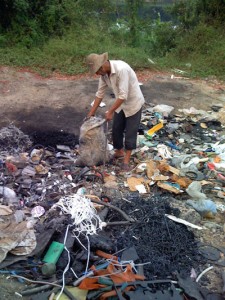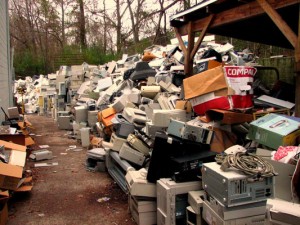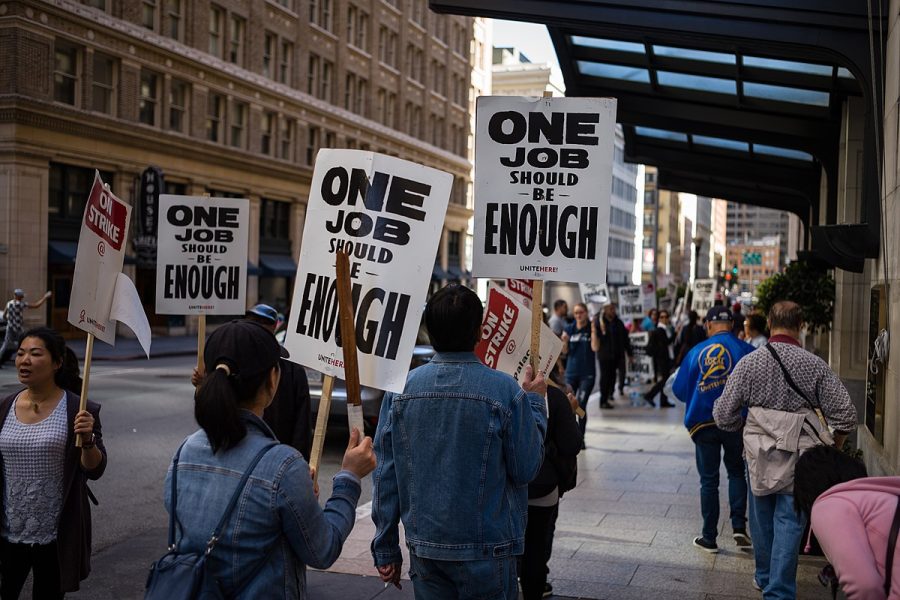
A new nation-wide strategy to improve the United State’s production and disposal of electronic waste was announced on July 20.
The new strategy, called the “National Strategy for Electronics Stewardship,” outlined responsible electronic design, purchasing, management and recycling methods to promote the new electronics recycling market as well as the creation of jobs, according to a press release on the announcement.
According to the U.S. EPA, there will not be any impact on consumer prices for electronics.
Through this strategy, the federal government plans to take a more active role in the recycling of electronics through promoting efficient and sustainable electronics, directing federal agencies to buy, use, reuse and recycle their electronics, supporting recycling options and systems for consumers and strengthening America’s role in electronics stewardship.
EPA Administrator Lisa P. Jackson explained how this new plan creates ties between the private electronic companies and the federal government to produce a stronger electronic industry.
“A robust electronics recycling industry in America would create new opportunities to efficiently and profitably address a growing pollution threat,” said Jackson.
“Through a strong federal partnership, and coordination with manufacturers, retailers, recyclers, State and local governments, and other stakeholders, the actions outlined here will help address the potential health and environmental problems caused by the mismanagement of discarded electronics,” said Nancy Sutley, Chair of the White House Council on Environmental Quality.

A collaboration between the U.S. Environmental Protection Agency, General Services Administration and the White House Council on Environmental Quality, the strategy is supported by several industrial giants such as Sony Electronics, Dell Inc. and Sprint.
“Our goal at Dell is to deliver the highest quality and most efficient products to our customers with the least environmental impact,” said Michael Dell, chairman and CEO, Dell Inc. “We encourage everyone in our industry to commit to easier, more responsible recycling as we all work to protect our planet.”
Sprint CEO Dan Hesse echoed Dell’s sentiment.
“Our current policy and today’s commitment with the EPA highlights our goal to handle electronic waste holistically—from product design to disposal—and is another proof point to our broader commitment to sustainability innovation,” said Hesse.
Outside of the federal government and industry heads, the report has gained varied responses.
The Consumer Electronics Association (CEA), an industry-driven organization, applauded the government’s efforts.
“Electronics recycling is a national problem that deserves a national solution,” said Walter Alcorn, CEA vice president of environmental affairs and industry sustainability, in a recent press release. “We look forward to…fortifying a robust public-private partnership that ensures consumers across our nation have ample opportunities to recycle electronics responsibly.”
Not all environmental organizations responded positively to the report, though all applauded its strong recommendations to promote green design and improve handling and recycling.
The Electronics TakeBack Coalition, a national coalition promoting responsible recycling of e-waste, sent out a press release stating that “it completely fails to address what is generally recognized as the most serious e-waste problem—e-waste exporting to developing countries.”
“We are very disappointed that the Task Force missed the opportunity handed to them by President Obama’s mandate to truly lead by example,” said Barbara Kyle, national coordinator of the coalition.
According to the Electronics TakeBack Coalition, most U.S. electronic waste is exported to developing countries to be bashed, burned, flushed with acids and melted down in unsafe conditions, leading to the development of health issues such as lead poisoning.
Californians Against Waste, another nonprofit organization, concurred with the Coalition in the reports inability to address exporting e-waste.











